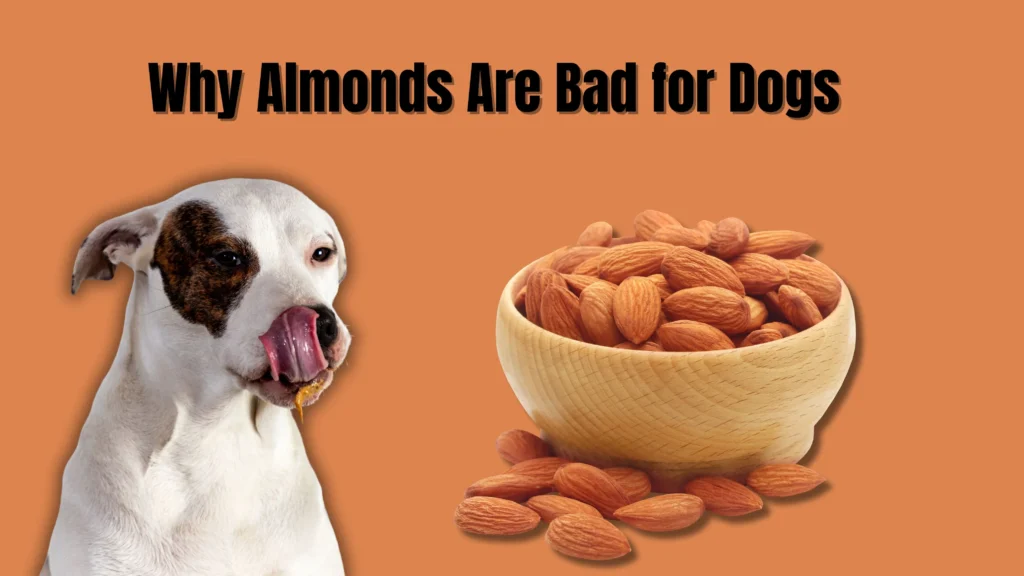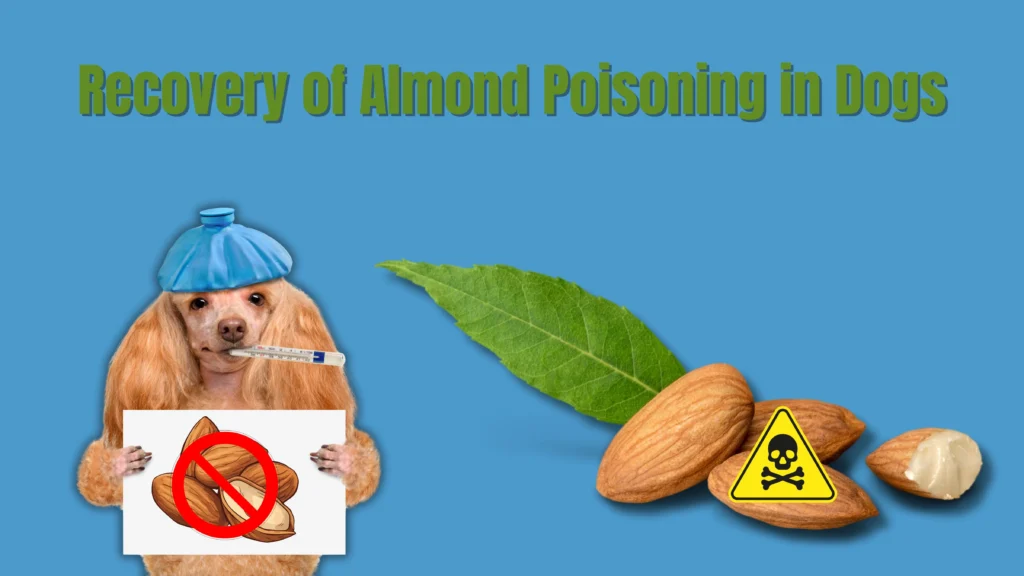Can Dogs Eat Almonds?
Almonds are not safe for dogs, as they can be hard to digest and may cause health issues. Even processed almonds, while less harmful than bitter ones, can still pose risks. Can Dogs Eat Almonds? Always consult a vet before offering any human food to your dog.
Macadamia nuts and walnuts are toxic to dogs, causing vomiting, tremors, and other serious symptoms. Even dog-safe nuts should be given in small amounts, as treats should make up only a tiny portion of their daily diet.
To avoid any health problems, it’s best to keep nuts away from dogs. If your dog consumes nuts and shows discomfort, contact a vet immediately.
Can Dogs Have Almond Butter?
Almond butter is safe for dogs in moderation if it’s free of harmful additives like salt, sugar, and xylitol. Although it contains vitamins and minerals, some dogs struggle to digest almonds, leading to stomach issues if consumed in large amounts.
Choose all-natural almond butter made from just almonds and limit portions. Its high-fat content can upset your dog’s digestive system. Nut butters like macadamia or pistachio should be avoided as they are toxic to dogs.
Always consider your dog’s dietary needs before sharing nut butter. Moderation is key to avoiding health issues.

Why Almonds Are Bad for Dogs
Although almonds aren’t directly toxic to dogs, they can cause significant health issues. Dogs struggle to digest the proteins in nuts, leading to gastrointestinal distress, obesity, and pancreatitis. The risk is further increased by potential aflatoxins from mold on almonds.
Feeding almonds can result in vomiting, diarrhea, and gas, with the potential for severe conditions like pancreatitis. Whole almonds can also cause obstructions, and their high salt content may lead to dangerous water retention, especially in dogs with heart problems. Despite their human health benefits, almonds are best avoided in a dog’s diet.
Can Dogs Have Almond Milk?
Many dogs are lactose intolerant because they lack the enzyme lactase needed to digest dairy. Consequently, traditional cow’s milk can cause digestive problems in dogs and is high in fat and sugar. For a safer option, plant-based milks like almond milk can be considered.
Almond milk can be a good occasional treat for dogs, offering lower lactose and sugar content compared to cow’s milk. However, it is high in calories and should not be given frequently. It’s essential to ensure almond milk doesn’t contain xylitol, which is harmful to dogs.
What to Do If Your Dog Eats Almonds
Almonds are not suitable for dogs due to digestive issues and potential risks. If a dog eats almonds, monitor for choking, intestinal blockage, or gastrointestinal distress. For large quantities, seek veterinary help or induce vomiting within 30 minutes.
While almonds offer human nutrition, they can harm dogs and should be avoided as treats. If a dog consumes a few almonds without immediate symptoms, observe them at home but opt for healthier treatment alternatives.
Almond Poisoning in Dogs
Almonds are not ideal for dogs due to digestive issues and potential health risks. They can cause gastrointestinal problems, obesity, and pancreatitis. Even though almonds are not highly toxic, they can lead to symptoms like vomiting and diarrhea, especially in smaller breeds.
If your dog eats a few almonds but shows no immediate symptoms, keep a close watch. For larger quantities or if symptoms like severe vomiting or choking occur, contact your vet. Other nuts, such as macadamia nuts and walnuts, are highly toxic, while cashews and hazelnuts pose risks like choking and digestive issues.

Recovery of Almond Poisoning in Dogs
If a dog consumes almonds, treatment often involves medications like antibiotics and stomach protectants, along with a calm recovery environment. Follow-up appointments may be necessary to monitor liver function, especially for aflatoxin poisoning. Dogs with pancreatitis usually need a low-fat, high-fiber diet and may benefit from pancreatic enzyme supplements.
Treating almond poisoning can be expensive, so having pet health insurance can help cover costs. While almonds and almond-based products can seem harmless, they pose risks like digestive distress and obstructions. Being informed about these risks helps ensure your dog’s snacks are safe.
Are Almonds Safe for Dogs?
Almonds are not toxic to dogs but can cause digestive issues like vomiting and diarrhea. Their high fat content increases the risk of pancreatitis, while whole almonds may lead to choking, especially in smaller dogs. These nuts should be avoided to prevent serious health problems.
Flavored or salted almonds pose additional risks due to harmful additives like salt, which can cause kidney issues and fluid retention. Phosphorus in almonds may lead to bladder stones, and there’s also a risk of aflatoxin poisoning. The potential dangers make almonds an unsafe treat for dogs.







